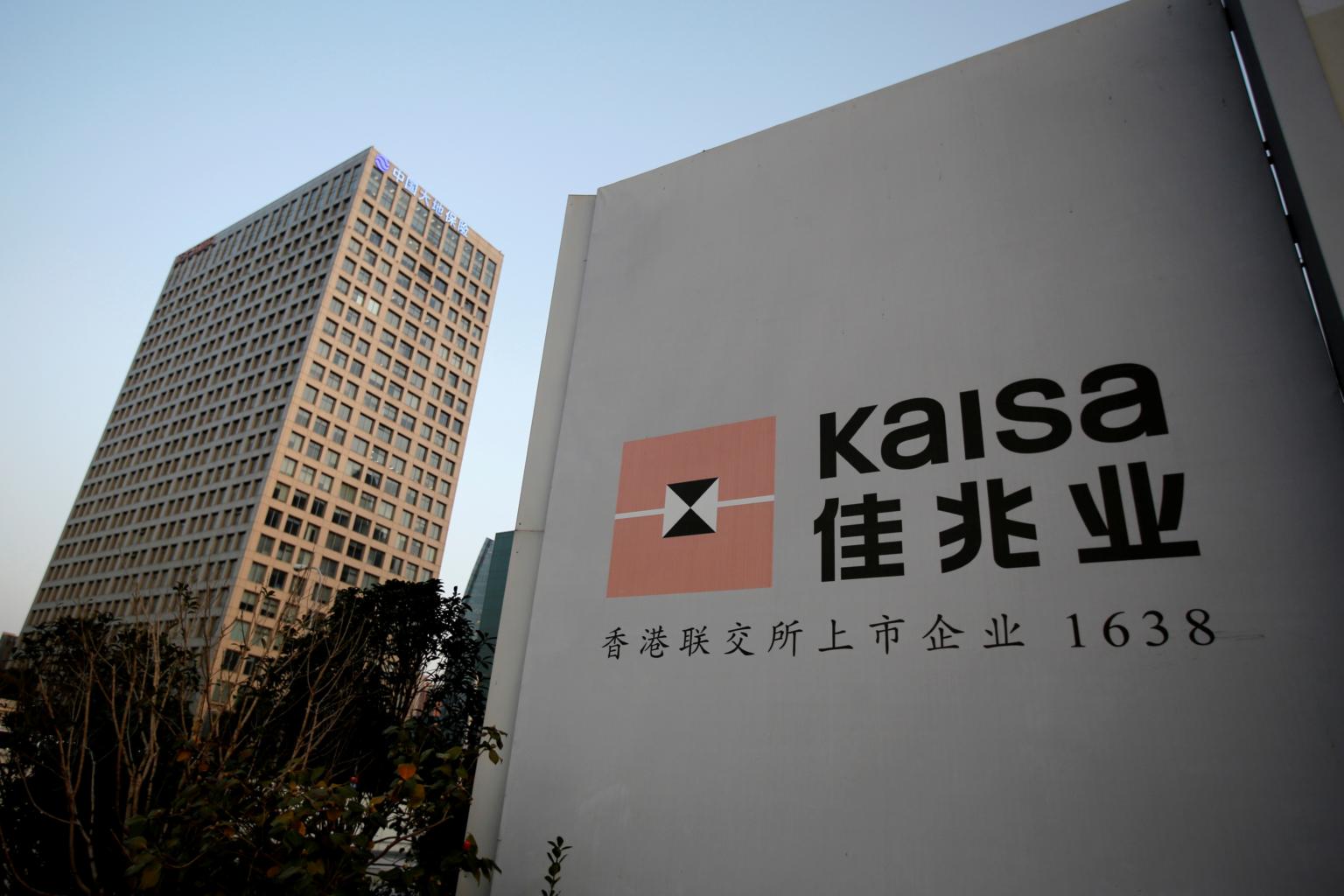China's first defaulting developer Kaisa is alarming bondholders again
Sign up now: Get ST's newsletters delivered to your inbox

Concerns for Kaisa's financial health are mounting at a time when soaring borrowing costs squeeze property firms with the worst balance sheets.
PHOTO: REUTERS
BEIJING (BLOOMBERG, AFP) - Investors searching for the next flashpoint in China's crisis-hit real estate sector are focusing on Kaisa Group Holdings.
Having gained notoriety in 2015 when it became the first Chinese builder to default on dollar bonds, concerns for Kaisa's financial health are mounting at a time when soaring borrowing costs squeeze property firms with the worst balance sheets.
Kaisa halted trading in Hong Kong on Friday (Nov 5), after its shares and bonds tumbled on Thursday amid media reports that wealth management products related to Kaisa had not been repaid when due, and that chairman Kwok Ying Shing admitted the company was facing "unprecedented pressure on its liquidity".
In addition to Kaisa's US$400 million (S$540.9 million) note due next month, it has US$2.8 billion of dollar bonds maturing next year, according to Bloomberg data. It is scheduled to pay an interim dividend of four Hong Kong cents per share on Dec 17, which would cost the company about HK$281 million (S$48.8 million).
What's the company?
Founded in 1999, the Hong Kong-listed firm operates in more than 50 cities in China, according to the company's website. In addition to core real estate operations, Kaisa has businesses in healthcare and transportation, and owns a football club. It ranks as China's 27th biggest property developer by contracted sales as at October, according to a list compiled by China Real Estate Information Corp.
Since completing a debt restructuring in 2016, it has grown to become China's third-largest dollar debt borrower among developers with more than US$11 billion of dollar bonds outstanding.
What's happening?
Kaisa cancelled meetings with investors last month, triggering concerns about its liquidity situation and sending its dollar bonds lower. Downgrades by both S&P Global Ratings and Fitch Ratings a few days later caused a fresh sell-off in the developer's shares, which have tumbled nearly 70 per cent this year. Its dollar bonds are among the worst performers in a Bloomberg index.
One major holder has exited at a loss. Chinese Estates Holdings, a Hong Kong real estate firm run by the family of billionaire Joseph Lau, sold the last of its Kaisa bonds at the end of last month. It expects an aggregate loss of US$174 million on its position this year. Reuters reported that Kaisa is seeking buyers for its Hong Kong-listed property management unit and two residential sites in the city, but no clear buyers had emerged.
Why does it matter?
Mounting scrutiny on Kaisa comes amid fragile confidence in China's property sector. At least four developers defaulted on dollar bonds last month and others are scrambling to avoid that fate. A record pace of defaults and downgrades for Chinese borrowers recently sent junk dollar bonds' yields to a decade-high.
Such surging borrowing costs have shut down offshore refinancing channels for Chinese firms. This has mired many in a negative cycle in which they are forced to reduce spending on land and construction to preserve cash for debt repayment, leading to sales declines that further restrain spending.
Kaisa's dollar bonds are actively traded and any big price move on the notes would typically cause others to follow suit. A potential default could roil the nation's high-yield market and further dampen investor sentiment, making it even harder for the sector to refinance.
What does the company say?
Kaisa said in its interim report that it "implemented a series of debt management measures" in terms of offshore financing in the first half of this year.
The developer said it has "successfully and effectively" lowered its financing barriers. As at June 30, the firm had around US$7.6 billion cash and bank deposits, representing an increase of 3.4 per cent compared with levels as at end-last year, according to its filing.
What do rating agencies say?
Kaisa was downgraded by three global rating agencies last week, all raising concerns about its ability to refinance and address upcoming debt maturities. The company was cut two notches to CCC+ by S&P and Fitch, and to Caa2 from B3 by Moody's Investors Service. The firm's "funding access has further weakened, as demonstrated by its highly volatile offshore bond prices", Moody's said.
Kaisa will need to sell assets to help avoid default, although such sales may not be completed in time to cover bond maturities, S&P analysts wrote. The company will need to manage a further US$2.2 billion to US$3 billion of offshore maturities a year over 2023 to 2025, according to S&P.
What are traders watching for next?
Kaisa has two interest payments due next week - US$58.5 million on a note maturing 2025 and US$29.9 million on a 2023 note. Investors are also keeping an eye on its next big payment when its 6.5 per cent dollar bond falls due next month, with US$400 million outstanding and US$13 million in interest.


